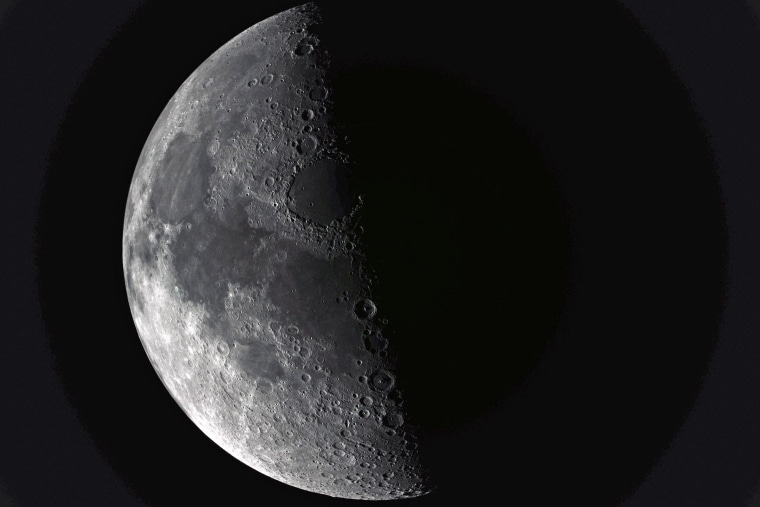It’s full steam ahead for NASA — at least according to Sean Duffy, the agency’s acting administrator.
During an internal employee town hall Thursday, Duffy warned of “letting safety be the enemy of progress” when it comes to winning the new space race, according to a recording of the meeting obtained by NBC News.
“We are safety driven, and we should be safety driven, and FAA and DOT, we’re the same, but sometimes we can let safety be the enemy of making progress,” said Duffy, who also serves as Transportation Secretary.
“We have to be able to take some leaps. We have to be able to jump forward in our innovation and drive this mission, and there’s always a balance to that, but we can’t side on the side of doing nothing because we’re afraid of any risk,” he told NASA employees alongside newly named NASA associate administrator Amit Kshatriya.
A spokesperson for NASA said the agency remains committed to safety.
Duffy’s comments come amid ongoing turmoil at NASA, with questions lingering about the space agency’s budget and priorities in the years ahead. Since the Trump administration took office, NASA and other government agencies have faced major cuts to funding and personnel as part of a sweeping goal to shrink the size of the federal workforce.
Duffy on Thursday told his staff that he was angered by the “shade thrown on all of NASA” at this week’s Senate hearing in which witnesses cast doubt that America could beat China to the moon.

“I’ll be damned if that is the story that we write,” said Duffy. “We are going to beat the Chinese to the moon. We are going to make sure that we do this safely. We’re going to do it fast. We’re going to do it right.”
Facing a time crunch
He noted time is not on NASA’s side.
“We’re under pressure to do this really well, really fast and really safely,” Duffy said.
NASA’s Artemis program, the linchpin of America’s efforts to return astronauts to the moon, aims to conduct regular missions to the lunar surface before the space agency eventually ventures to Mars.
While the U.S. was dominant during its first moonshot — the Apollo moon program of the 1960s and 1970s — that decades-long advantage is now under threat. Several spacefaring nations, including China, Russia, India and Japan, also have their sights set on the moon, setting off a next-generation space race.
China, in particular, has made rapid gains with its human spaceflight program. In recent months, China successfully tested an uncrewed lunar lander and a new rocket for moon missions — crucial steps in realizing the country’s ambitions.
China has said it is aiming to land Chinese astronauts on the moon by 2030. Earlier this year, Chinese officials also said the country may build a nuclear plant on the lunar surface to power the moon base that it plans to jointly operate with Russia.
Meanwhile in the U.S., President Donald Trump’s budget blueprint proposed cutting more than $6 billion from NASA’s budget.
Despite the White House proposing to slash the agency’s budget by roughly 24%, Duffy insisted the Artemis program will continue, but “it’s important that we bring the cost down.”
As part of the Trump administration’s push to reduce the size of the federal workforce, around 4,000 NASA employees accepted deferred resignation program offers — shrinking the space agency’s staff of 18,000 by nearly one-fifth.
In July, Reuters reported that more than 2,000 senior-level employees at the space agency were set to leave under the latest round of cuts.
Duffy said at this point, he thinks NASA has enough money and manpower to accomplish its mission over the next several years.
“If we don’t, I guarantee you, 100% I will go to the president, I will go to OMB, I’ll go to the House, I’ll go to the Senate, and I’ll ask for more money,” Duffy said.
“More money doesn’t always mean more success, but again, sometimes money is success, and if we need it, I’ll ask for it,” he added.
Duffy said he would be leading the government’s space exploration entity “for the foreseeable future.”
Source link


